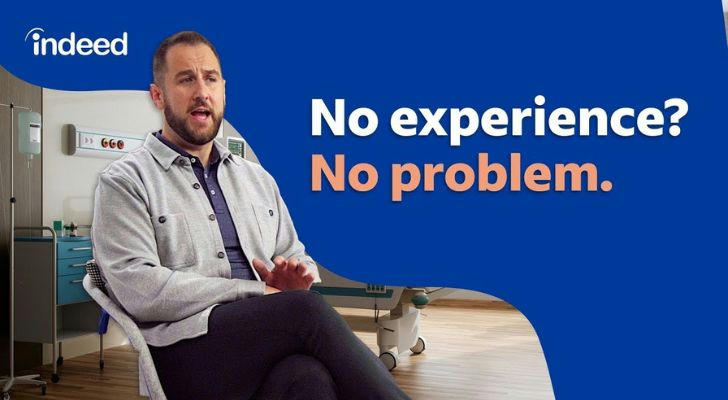5 Entry-Level Healthcare Jobs You Can Start Without a Degree
Medical billing and medical coding are two key functions that help healthcare systems run efficiently. While they often work closely together, they are distinct roles with different responsibilities, required skills, and career paths.

Healthcare is one of the fastest-growing industries in the United States, and you don't always need a college degree to be part of it. While doctors and registered nurses spend years in school, there are many entry-level roles that provide meaningful work, steady income, and opportunities for advancement — all without requiring a four-year degree.
Whether you're a recent high school graduate, a career changer, or someone looking to re-enter the workforce, these five jobs offer a strong starting point. Here's what you need to know.
1. Certified Nursing Assistant (CNA)
What they do:
Certified Nursing Assistants help patients with basic daily activities like bathing, eating, and moving around. They often work in hospitals, nursing homes, and assisted living facilities, providing hands-on care and emotional support.
Typical duties include:
- Helping patients with hygiene and mobility
- Measuring vital signs
- Assisting nurses with medical procedures
- Observing and reporting changes in patient condition
Training and certification:
Most CNA programs take just 4 to 12 weeks to complete and are offered at community colleges or vocational schools. After training, you'll need to pass a state certification exam.
Salary and outlook:
The average pay for CNAs in the U.S. is around $35,000 per year, and demand is expected to grow due to an aging population.
Good for:
People who enjoy working directly with patients and want to enter the workforce quickly.

2. Medical Assistant
What they do:
Medical Assistants perform a mix of clinical and administrative tasks in clinics, physician offices, and outpatient facilities. They may take patient histories, schedule appointments, and assist during exams.
Typical duties include:
- Recording patient information and vital signs
- Assisting with minor medical procedures
- Managing medical records and billing
- Preparing exam rooms
Training and certification:
Formal education isn’t always required, but most employers prefer candidates who have completed a 6- to 12-month certification program. Some roles may offer on-the-job training.
Salary and outlook:
The median annual wage is around $40,000, and the U.S. Bureau of Labor Statistics predicts strong job growth in this field through 2032.
Good for:
Those looking for a versatile healthcare job with both clinical and clerical responsibilities.
3. Phlebotomy Technician
What they do:
Phlebotomy Technicians specialize in drawing blood for tests, transfusions, or donations. They work in hospitals, labs, and blood donation centers.
Typical duties include:
- Drawing blood from patients or donors
- Labeling and storing blood samples
- Calming nervous patients
- Ensuring proper sanitation and safety procedures
Training and certification:
Training programs typically last 1 to 3 months. Certification requirements vary by state, but many employers prefer certified candidates from organizations like the National Healthcareer Association (NHA).
Salary and outlook:
The average salary is around $38,000, with higher earnings possible in specialized settings.
Good for:
People with a steady hand, good attention to detail, and an interest in lab work.
4. Home Health Aide (HHA)
What they do:
Home Health Aides assist people with disabilities, chronic illnesses, or cognitive impairments. They typically work in private homes, helping clients with personal care and daily activities.
Typical duties include:
- Helping clients with bathing, grooming, and dressing
- Preparing meals and assisting with feeding
- Monitoring health and reporting changes
- Providing companionship and support
Training and certification:
Many states require HHAs to complete a short training program and pass a competency exam, especially if working for a Medicare-certified agency.
Salary and outlook:
Average earnings are about $33,000 annually, but demand is extremely high. Job growth in this field is projected to be much faster than average.
Good for:
Individuals who prefer one-on-one care in a home setting and are compassionate by nature.
5. Patient Care Technician (PCT)
What they do:
Patient Care Technicians work alongside nurses to care for patients in hospitals, dialysis centers, and rehabilitation facilities. The role is similar to a CNA but may include additional responsibilities.
Typical duties include:
- Monitoring vital signs and patient progress
- Assisting with mobility and personal care
- Drawing blood and performing EKGs (depending on training)
- Providing emotional support to patients and families
Training and certification:
Programs usually take 4 to 6 months. While certification is not always required, having credentials from a recognized organization like the NHA can improve job prospects.
Salary and outlook:
The median annual salary is about $37,000, and demand continues to grow, especially in hospitals and long-term care settings.
Good for:
Those who want a hands-on role with diverse responsibilities in a clinical environment.

Why Consider an Entry-Level Healthcare Job?
Here are a few reasons why many people are choosing these paths:
- Quick entry to the workforce: Most roles require only a few months of training.
- Meaningful work: You'll be helping people directly, often during difficult times.
- Career growth: Many of these jobs offer a stepping stone to advanced positions like LPN, RN, or healthcare administration.
- Flexibility: Jobs are available in various settings including hospitals, clinics, and private homes.
Things to Keep in Mind
Before starting, consider the following:
- Physical demands: Most of these jobs require long hours on your feet, lifting patients, and working shifts.
- Emotional resilience: Working with patients can be emotionally rewarding but also challenging.
- State regulations: Licensing and certification requirements vary by state, so it’s important to check local guidelines.
Final Thoughts
You don’t need a degree to begin a meaningful and stable career in healthcare. By choosing a practical training program and gaining hands-on experience, you can start working in as little as a few weeks or months. Whether your goal is long-term employment or a stepping stone to a more advanced medical role, these five positions offer a solid foundation.
Explore training programs near you, talk to professionals in the field, and take the first step toward a healthcare career that makes a difference.
